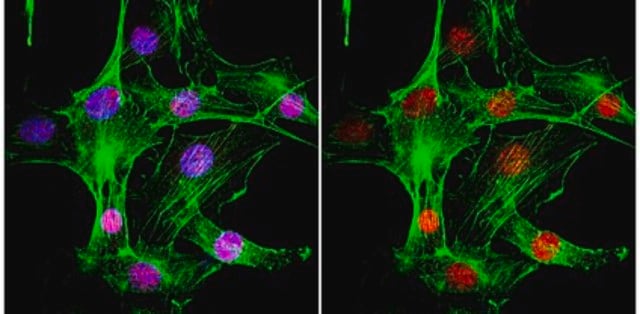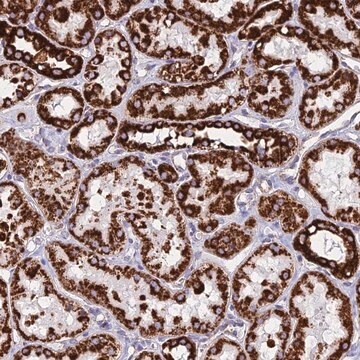SAB2700181
Anti-NS3 antibody produced in rabbit
affinity isolated antibody, buffered aqueous solution
Synonym(s):
Dengue virus 2 Nonstructural protein NS3, Non-structure protein 3
About This Item
Recommended Products
biological source
rabbit
Quality Level
conjugate
unconjugated
antibody form
affinity isolated antibody
antibody product type
primary antibodies
clone
polyclonal
form
buffered aqueous solution
species reactivity
Dengue virus
technique(s)
flow cytometry: suitable
immunofluorescence: suitable
immunohistochemistry: suitable
western blot: 500-3000
NCBI accession no.
shipped in
wet ice
storage temp.
−20°C
General description
Immunogen
Application
Anti-NS3 antibody produced in rabbit has been used in flow cytometry.
Biochem/physiol Actions
Features and Benefits
Physical form
Disclaimer
Not finding the right product?
Try our Product Selector Tool.
Signal Word
Warning
Hazard Statements
Precautionary Statements
Hazard Classifications
Aquatic Chronic 3 - Skin Sens. 1
Storage Class Code
12 - Non Combustible Liquids
WGK
WGK 2
Flash Point(F)
Not applicable
Flash Point(C)
Not applicable
Certificates of Analysis (COA)
Search for Certificates of Analysis (COA) by entering the products Lot/Batch Number. Lot and Batch Numbers can be found on a product’s label following the words ‘Lot’ or ‘Batch’.
Already Own This Product?
Find documentation for the products that you have recently purchased in the Document Library.
Our team of scientists has experience in all areas of research including Life Science, Material Science, Chemical Synthesis, Chromatography, Analytical and many others.
Contact Technical Service









